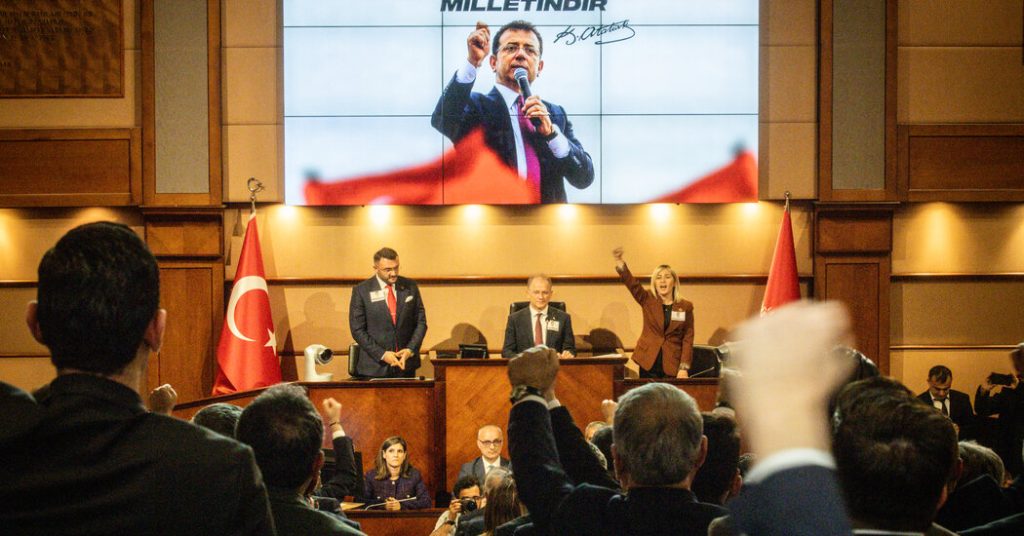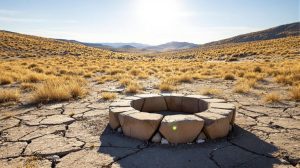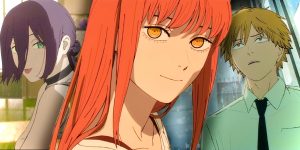One week after the Turkish government arrested the mayor of Istanbul, who is the top rival to President Recep Tayyip Erdogan, the political opposition on Wednesday pressed new tactics to fight what it called an assault on the country’s democracy.
The arrest has set off nightly demonstrations that have drawn hundreds of thousands of antigovernment protesters to the streets of Istanbul and other cities. Now, Mr. Erdogan’s opponents are calling on Turks to boycott companies said to support Mr. Erdogan and vowing to organize a mass protest on Saturday in place of the smaller rallies.
The shift in tactics — including holding public fast-breaking meals for people observing the Muslim holy month of Ramadan — came amid a government crackdown on protesters. The government has issued protest bans in major cities and limited access to social media sites; some protesters have clashed with riot police using water cannons and pepper spray to clear them from the streets.
More than 1,300 people have been arrested in recent days in connection with the demonstrations, the Interior Ministry said, and about 170 have been jailed pending trial. Those arrested included 11 journalists, some of whom remained in custody on Wednesday, including a photographer for Agence France-Presse.
The government has accused Mr. Imamoglu, 54, of leading a criminal organization in City Hall and accepting bribes, rigging bids and misusing citizens’ personal data. He has denied the charges.
Mr. Erdogan has described the protesters, many of whom are university students, as violent vandals and has accused the country’s main opposition party of stirring up trouble to distract from the accusations against the mayor.
“A great country like Turkey has a very small, very underdeveloped, very inadequate main opposition party,” Mr. Erdogan said on Monday. “It has become clear that you cannot trust them to run even a snack shop, let alone the state or the municipalities.”
While some European leaders have called on Turkey to uphold the rule of law, senior White House officials have not publicly commented on Mr. Imamoglu’s arrest.
President Trump complimented Turkey and Mr. Erdogan in a meeting on Tuesday with ambassadorial nominees. “Good place,” Mr. Trump said. “Good leader, too.”
On Wednesday, Istanbul’s City Council elected an interim mayor — Nuri Aslan, who previously served as the council’s deputy head — to run the city of 16 million people while Mr. Imamoglu remained in detention. The opposition holds a majority on the council.
The head of Mr. Imamoglu’s Republican People’s Party, Ozgur Ozel, has criticized pro-government news outlets for not sufficiently covering the protests. And the party has called for a boycott of Turkish businesses connected to those outlets.
A website launched to coordinate the boycott lists the names and logos of 20 companies, including a number of television channels, a popular coffee chain, an online bookstore and a tour company owned by Mr. Erdogan’s tourism minister.
Criticizing the call for a boycott, Mr. Erdogan on Wednesday accused the opposition of “sinking the economy” with its protests and being “so frenzied that they would throw the country and the nation into the fire.”
Mr. Erdogan, 71, who has led Turkey as prime minister and president since 2003, is in his second presidential term, which expires in 2028. The Constitution bars him from running again unless Parliament calls for early elections, which are widely expected.
Many in Turkey say they believe that the sudden moves against Mr. Imamoglu last week sought to exclude him from the presidential race before it begins.








